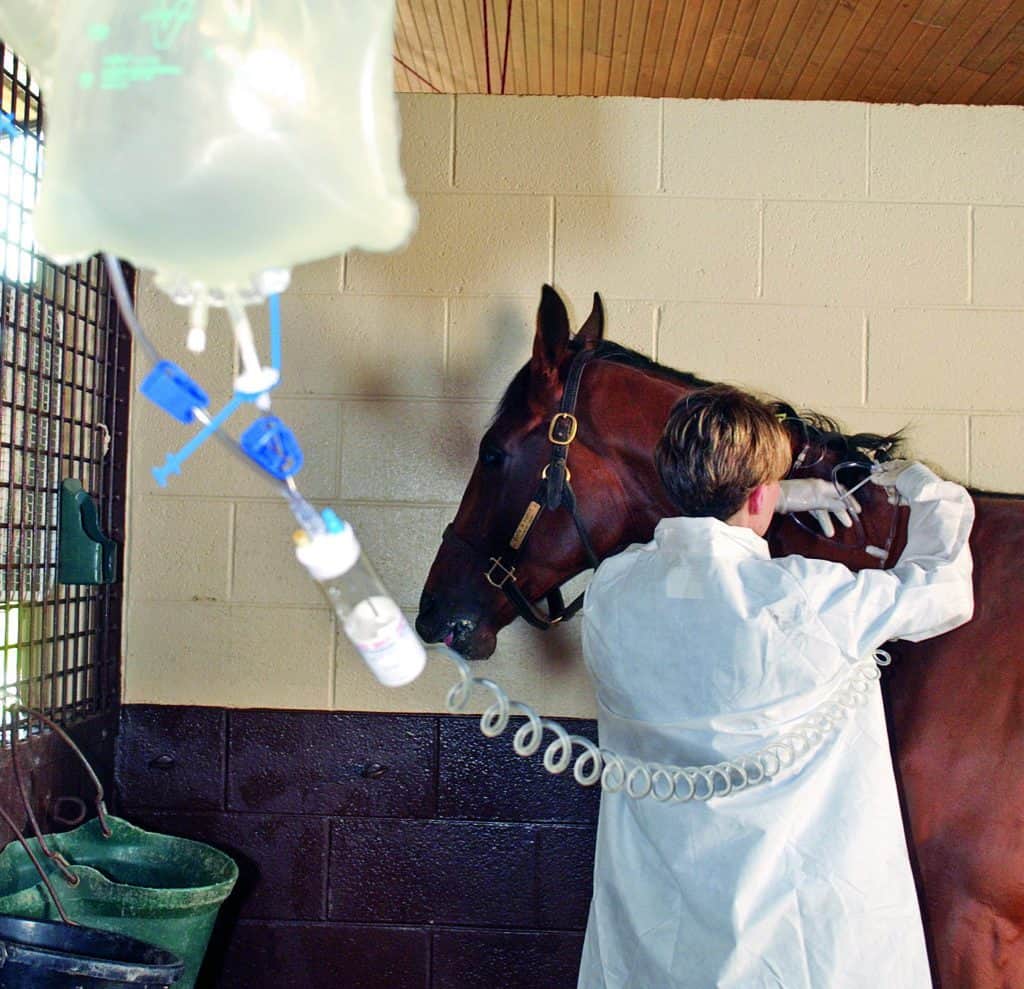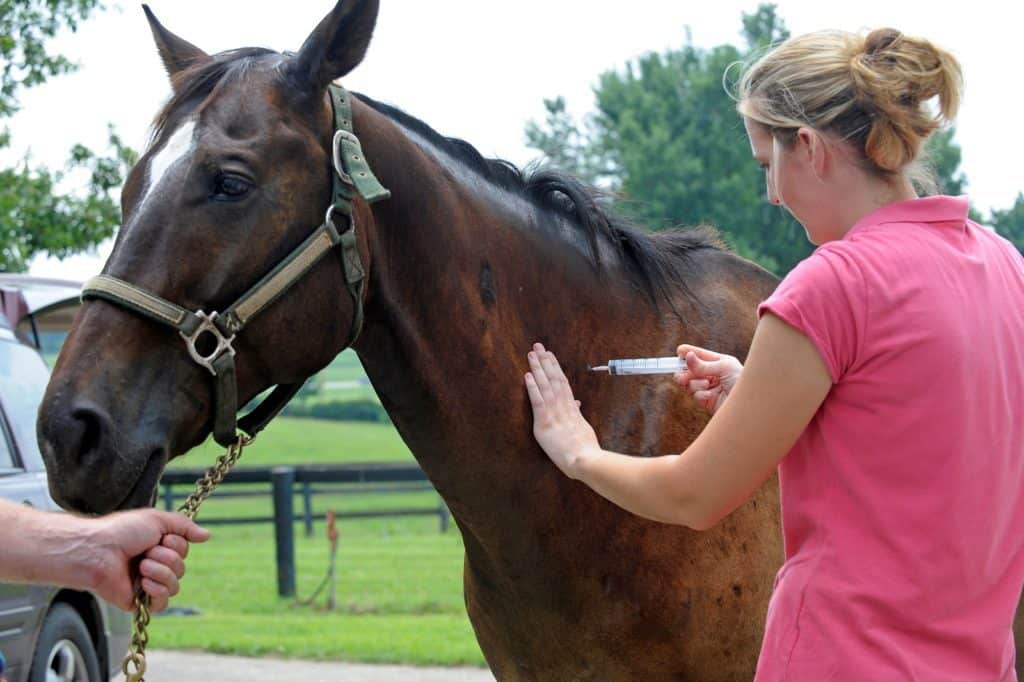International Equine Disease Report, Third Quarter
Diseases reported include African horse sickness, influenza, EHV, EIA, rabies, and more.
Diseases reported include African horse sickness, influenza, EHV, EIA, rabies, and more.

Watch for these conditions that impact nutrient absorption and lead to weight loss in horses.
Lecture topics will include vaccinations, disease surveillance, foal nutrition, R. equi, biosecurity, and more.
Reported diseases include African horse sickness, herpesvirus, influenza, strangles, and equine infectious anemia.
Diagnosed diseases include vesicular stomatitis, EHV, strangles, influenza, piroplasmosis, rabies, and more.

Long-distance transport poses risks for horse health and welfare that should not be taken lightly, researchers found.

Attendees from around the world gathered to discuss the latest topics and trends of equine infectious diseases.

Researchers found that bloody nasal discharge was common in horses with Klebsiella pneumonia.

The 10th International Equine Infectious Diseases Conference will convene April 4-8 in Buenos Aires, Argentina.
Research topics include EHV-1 latency, foal pneumonia, training and surface factors in preventing injury, and more.
The University of Kentucky Veterinary Diagnostic Laboratory offers real-time polymerase chain reaction assay testing for Rhodococcus equi.

Giving foals hyperimmune plasma did not prevent infection, but it did reduce the severity of R. equi pneumonia.
The studies funded cover equine health challenges including infectious diseases, musculoskeletal disorders, and more.
Confirmed diseases include vesicular stomatitis, herpesvirus, influenza, Getah virus, and strangles, among others.

Here’s a rundown on our arsenal of equine disease-fighting drugs and their proper uses.

This finding is the first molecular characterization of resistance to three classes of antibiotics in R. equi.
Stay on top of the most recent Horse Health news with
"*" indicates required fields